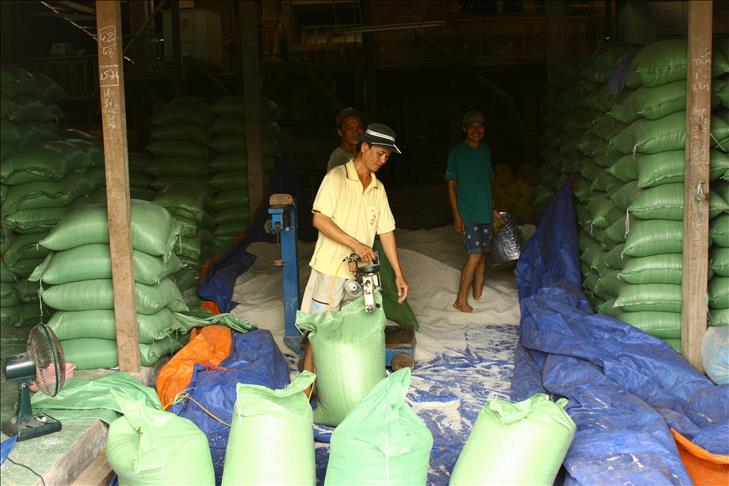
By Denise Hruby
PHNOM PENH, Cambodia
Almost half of Cambodia's youth named future employment as their biggest worry, a new study by a local coalition of youth groups shows.
Asked about their major worry in life, 49 percent of respondents aged between 15 and 35 said that not being able to find employment was their biggest fear.
“The research has pointed out that young people are greatly concerned over employment opportunities, and that this worry is especially high after they graduate from high school or university,” Thol Dyna, a researcher at the Analyzing Development Issues Center, which conducted the study for Youth Committee for Unity and Development, told Anadolu Agency on Monday.
Cambodia has one of the youngest populations in Southeast Asia, with around half of the population aged under 25.
The study, which is still being finalized, also shows that low salaries and poor education added to the youth's fears.
“They think they won't be able to make use of their knowledge, but at the same time there is a big concern that their quality of education is low, and that contributes to their fear,” Dyna said.
Thirty percent of youth said that the country lacked an appropriate amount of schools and teachers. The average teacher-student ratio is 46.2 in primary schools – the highest in Asia, and almost twice that of Laos and Myanmar.
“There is also a lot of complaints about the mismatch between the skills that are needed and the skill set that young people have,” Dyna said.
The labor market, which is flooded by an estimated 200,000 job-seeking youth each year, has long complained that workers lack basic skills, and that the government needed to provide more vocational training.
To keep the current GDP growth of around 7 percent, Cambodia will need an additional 35,000 engineers and 46,000 technicians by 2018.
In a 2012 World Bank report, 73 percent of employers said that Cambodian university graduates do not have the right skills for the jobs for which they apply.
The lack of skills was a “severe” or “very severe” constraint for 22 percent of foreign firms doing business in Cambodia, and about 75 percent struggle to fill even low-skilled positions with qualified workers.
Srinivasasa Madhur, an education and labor market expert with the Cambodian Development Research Institute, said that the direly underfunded system needed a complete overhaul.
“If the system isn’t completely revised, you can’t maintain the almost 8 percent growth, which they need to achieve the status of an upper-middle income country,” Cambodia’s goal by 2030, Madhur said.
Anadolu Agency website contains only a portion of the news stories offered to subscribers in the AA News Broadcasting System (HAS), and in summarized form. Please contact us for subscription options.

